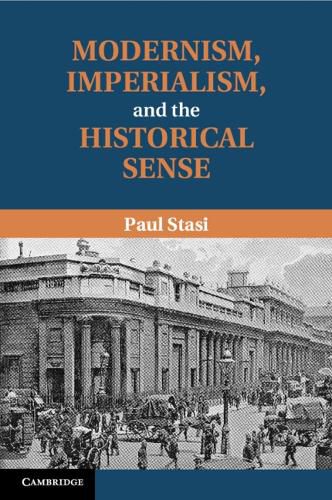Readings Newsletter
Become a Readings Member to make your shopping experience even easier.
Sign in or sign up for free!
You’re not far away from qualifying for FREE standard shipping within Australia
You’ve qualified for FREE standard shipping within Australia
The cart is loading…






Modernist art and literature sought to engage with the ideas of different cultures without eradicating the differences between them. In Modernism, Imperialism and the Historical Sense, Paul Stasi explores the relationship between high modernist aesthetic forms and structures of empire in the twentieth century. Stasi's text offers new readings of James Joyce, Ezra Pound, T. S. Eliot and Virginia Woolf by situating their work within an early moment of globalization. By combining the insights of Marxist historiography, aesthetic theory and postcolonial criticism, Stasi's careful analysis reveals how these authors' aesthetic forms responded to, and helped shape, their unique historical moment. Written with a wide readership in mind, this book will appeal especially to scholars of British and American literature as well as students of literary criticism and postcolonial studies.
$9.00 standard shipping within Australia
FREE standard shipping within Australia for orders over $100.00
Express & International shipping calculated at checkout
Modernist art and literature sought to engage with the ideas of different cultures without eradicating the differences between them. In Modernism, Imperialism and the Historical Sense, Paul Stasi explores the relationship between high modernist aesthetic forms and structures of empire in the twentieth century. Stasi's text offers new readings of James Joyce, Ezra Pound, T. S. Eliot and Virginia Woolf by situating their work within an early moment of globalization. By combining the insights of Marxist historiography, aesthetic theory and postcolonial criticism, Stasi's careful analysis reveals how these authors' aesthetic forms responded to, and helped shape, their unique historical moment. Written with a wide readership in mind, this book will appeal especially to scholars of British and American literature as well as students of literary criticism and postcolonial studies.